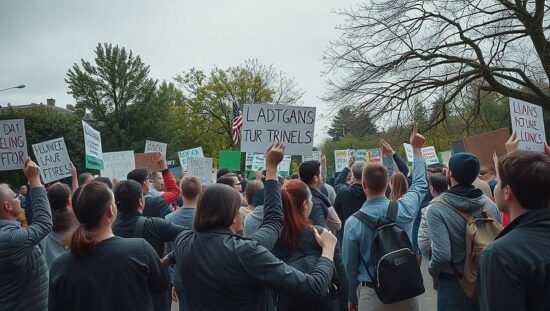The German coalition government’s recent decision to reduce aviation tax is drawing fierce criticism from transportation and environmental groups, as well as the Left party, raising questions about the government’s commitment to climate action and social equity. Christiane Rohleder, president of the German Transport Club (VCD), condemned the move as a “blow against climate protection” highlighting the stark contrast between making air travel cheaper while simultaneously increasing the cost of the Deutschlandticket, a subsidized public transportation pass.
Rohleder argued that the tax reduction actively promotes “the most climate-damaging mode of transport” while simultaneously placing an additional burden on environmentally friendly public transport options, ultimately impacting future generations and the broader population. Janine Wissler, deputy chair of the Left party’s parliamentary group, echoed this sentiment, asserting that the funds could be better allocated to supporting essential public services and infrastructure rather than subsidizing the aviation industry. She criticized the government’s prioritization, stating that the cost of commuting is being extracted from everyday citizens while the aviation sector benefits.
The Left party labeled the policy as “climate-politically absurd and socially unjust” emphasizing the need for greater investment in public mobility rather than further boosting air travel. Critics contend that the decision undermines Germany’s commitments to reducing carbon emissions and disproportionately impacts those who rely on affordable public transit.
Defending the coalition’s decision, Schleswig-Holstein’s Minister-President Daniel Günther of the CDU acknowledged the need to support the economy but maintained a commitment to climate goals. He pointed to the controversial “Kraftwerkstrategie” – a plan to build eight gigawatts of gas-fired power plants – as a step in the right direction, highlighting its inclusion of “hydrogen-ready” technology. However, this strategy itself has also been criticized by environmentalists as counterproductive to decarbonization efforts.
CDU parliamentarian and Coordinator for Maritime Economy and Tourism, Christoph Ploß, framed the aviation tax reduction as a necessary measure to revitalize the German aviation industry. He believes the reduction will stimulate increased air traffic and passenger numbers at German airports, bolstering the national economy and attracting more tourists and business travelers. Ploß asserted that the CDU had long advocated for these tax cuts, predicting a positive impact on the overall economic climate.
The debate underscores a growing divide within Germany’s political landscape regarding how to balance economic recovery with ambitious climate goals and raises serious concerns about the social implications of prioritizing specific industries above the needs of citizens and the long-term health of the environment.





